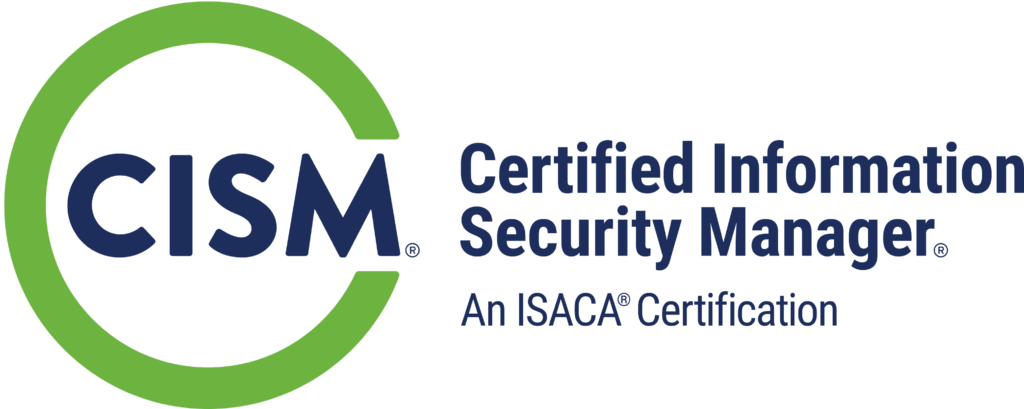- Home
- Explore
-
-
CYBERSECURITY
Cybersecurity qualifications unlock careers, prove expertise, drive innovation, and will shape the digital frontier in tomorrow’s AI-driven threat landscape.
Learn More
-
HOMELAND SECURITY
Homeland Security qualifications empower leaders, safeguard nations, advance resilience, and shape the next generation of defenders in an evolving global threatscape.
- Leadership and Management
- Emerging Technologies
- Medical Management & Prehospital Considerations
- Capstone
-
CPS PROGRAMS
George Washington University’s College of Professional Studies offers dynamic, career-ready courses in leadership, cybersecurity, CBRNE, technology, and public service—transforming professionals worldwide.
Learn More
-
REVU EXCLUSIVES
GW RevU’s growing number of exclusive courses offer a range of learning opportunities, from student success and introductory courses to cutting-edge courses about what is happening in the world now.
Learn More
-
-
-
- Cybersecurity
-
-
CYBERSECURITY
Welcome to CyberForge.
MISSION — GW RevU aims to be a prime resource for lifelong learners and employers offering interdisciplinary, career-focused credentials that support up-skill, reskilling, and society advancement.VISION — GW RevU envisions delivering innovative, flexible education that meets evolving workforce needs and to empower professionals with current, market- and needs-based skills.
Learn More
-
PARTNERS
-
Cybersecurity (Coming Soon)
-
CISSP (Coming Soon)
- Homeland Security
-
-
HOMELAND SECURITY
Chemical. Biological. Radiological. Nuclear. Explosive. WMDs. Asymmetric Threats.
The CBRNE-WMD credentials program is a robust training series designed to prepare early and developing professionals for the complexities of a dynamic and evolving threat environment. Three interdependent certificates that deal with policy, mitigation, and emerging threats will propel you towards an immersive capstone in Washington, D.C. and the next steps in your career protecting our nation.

-

CBRNE-WMD Leadership and Management
Gain strategic leadership skills to manage CBRNE-WMD incidents through legal frameworks, interagency coordination, and real-world case studies.

CBRNE-WMD Hospital and Pre-Hospital Management
Learn medical response skills for CBRNE-WMD incidents, including triage, decontamination, PPE, and early threat detection in mass casualty events.

CBRNE-WMD Emerging Threats
Explore emerging CBRNE-WMD threats and technologies like AI and nanotech to enhance preparedness and response capabilities in complex environments.

CBRNE-WMD Capstone Event, Washington, D.C.
Experience an immersive, high-intensity, and multi-modal exercise that reflects the dynamic asymmetric threats of the modern world. The Capstone Experience is an annual event that is available to students that have completed the other CBRNE-WMD credentials.
-
- Degree Programs
-
-
CPS Programs
GW’s CPS bachelor programs empower working professionals with flexible, real-world education—launching impactful, leadership-focused, globally-oriented careers.
Learn More
-
BACHELORS DEGREES
GW’s CPS bachelor programs empower working professionals with flexible, real-world education—launching impactful, leadership-focused, globally-oriented careers.
Learn More
-
POSTGRADUATE DEGREES
CPS’s postgraduate programs transformed experienced professionals into visionary leaders through immersive, real-world learning, powerful networks, and practical rigor across critical fields.
- Cybersecurity Strategy & Information Management
- Homeland Security
- Legislative Affairs
- Paralegal Studies
- Political Management
- Public Relations & Communications
- Publishing
- Sustainable Urban Planning
-
REVU EXCLUSIVES
GW RevU’s growing number of exclusive courses offer a range of learning opportunities, from student success and introductory courses to cutting-edge courses about what is happening in the world now.
Learn More
-
- About RevU
Instructor-Led CISM by GW RevU (6w)
Our CISM® (Certified Information Security Manager®) exam preparation program is designed to build the expertise required to earn the credential. Recognized as a leading certification for professionals responsible for developing, managing, and evaluating enterprise information security systems, CISM® sets the standard in the field. This course guides participants through targeted practice and assessments to reinforce understanding, ensuring they are well-prepared to succeed on the exam.
ABOUT THIS COURSE
Designed for IT professionals with technical expertise and experience in IS/IT security and control looking to transition from team player to manager. CISM can add credibility and confidence to interactions with internal and external stakeholders, peers, and regulators.
This certification indicates expertise in information security governance, program development and management, incident management and risk management.
Content in this course is:
- Aligned with the CISM job practice.
- Adapted from the CISM Review Manual 16th Edition.
- Reviewed by subject matter experts that hold the CISM certification.
ISACA credentials are among the top 10 highest-paying in IT, and CISM is recognized as the preferred credential for IT Managers. 70% of certificate holders experienced on-the-job improvement, and 42% received a pay boost.
ISACA’s CISM certification is DoD 8140 Approved and aligned to the Cyber Workforce Framework (DWCF).


Overview
Modality
Online
Format
Synchronous
Pricing
$2595.00
Partner
RevU
Topic
CyberForge
Information Technology and Cybersecurity
Information Technology and Engineering
ISACA
Course Dates
- Dates: 1/19 – 2/27, 2026
- Live Seminars: TUE & THU (7-9 pm EST)
Why Choose GW RevU for CISM® Prep?
- Join the GW Brand – Learn with the credibility and reputation of The George Washington University.
- Expert-Led Instruction – Courses taught by GW faculty with real-world industry experience.
- Interactive Learning – Live, synchronous sessions paired with dedicated exam prep time.
- Simulated Practice Exam – Put your knowledge to the test through a practice exam.
- Flexible Support – Personalized office hours scheduled around your availability.
- All-Inclusive GW RevU Learner Kits – Exam voucher included with enrollment.
- Expand Your Network – Connect with peers and professionals in the field.
- Direct Support – Connect with our Cybersecurity experts for one-on-one assistance.
gw revu Learning Kit includes
- Authorized ISACA Digital Courseware
- Online QAE Database (Practice Exam Portal)
- Exam Voucher
continuing professional education (Cpe)
- Up to 32 CPE hours per course (greater than self-paced courses);
- Counts fully towards the 20 annual / 120 tri-annual CEP requirement for CISM maintenance;
- Verification of attendance provided for audit purposes.
Learn more about ISACA’s CPE policy and CISM maintenance.
Meet Our Industry Experts
Learn from top professionals in the field, including military veterans, cybersecurity experts, and specialists in analysis and defense. These instructors bring a wealth of experience from government, industry, and academia, providing you with the most current and relevant insights.
COURSE REQUIREMENTS
There are no prerequisites for this course. There are, however, specific steps that must be taken to acquire and maintain the CISM certification:
- Pass the CISM examination;
- Submit an application for CISM certification;
- Adhere to the Code of Professional Ethics;
- Dedicate to the Continuing Professional Education Program; and
- Comply with the Information Security Standards.
COURSE SYLLABUS
Module 1 – Information Security Governance
Estimated Duration: 3 hours 30 minutes
Session Topics:
- Enterprise Governance Overview
- Organizational Culture, Structures, Roles and Responsibilities
- Legal, Regulatory and Contractual Requirements
- Information Security Strategy
- Information Governance Frameworks and Standards
- Strategic Planning
Learning Objectives:
- Describe the role of governance in creating value for the enterprise.
- Explain the importance of information security governance in the context of overall enterprise governance.
- Describe the influence of enterprise leadership, structure and culture on the effectiveness of an information security strategy.
- Identify the relevant legal, regulatory and contractual requirements that impact the enterprise.
- Describe the effects of the information security strategy on enterprise risk management.
- Evaluate the common frameworks and standards used to govern an information security strategy.
- Explain why metrics are critical in developing and evaluating the information security strategy.
Module 2 – Information Security Risk Management
Estimated Duration: 3 hours 45 minutes
Session Topics:
- Risk and Threat Landscape
- Vulnerability and Control Deficiency Analysis
- Risk Assessment, Evaluation and Analysis
- Information Risk Response
- Risk Monitoring, Reporting and Communication
Learning Objectives:
- Apply risk assessment strategies to reduce the impact of information security risk.
- Assess the types of threats faced by the enterprise.
- Explain how security control baselines affect vulnerability and control deficiency analysis.
- Differentiate between application of risk treatment types from an information security perspective.
- Describe the influence of risk and control ownership on the information security program.
- Outline the process of monitoring and reporting information security risk.
Module 3: Information Security Program Development and Management
Estimated Duration: 6 hours 45 minutes
Session Topics:
- IS Program Development and Resources
- IS Standards and Frameworks
- Defining an IS Program Road Map
- IS Program Metrics
- IS Program Management
- IS Awareness and Training
- Integrating the Security Program with IT Operations
- Program Communications, Reporting and Performance Management
Learning Objectives:
- Outline the components and resources used to build an information security program.
- Distinguish between common IS standards and frameworks available to build an information security program.
- Explain how to align IS policies, procedures and guidelines with the needs of the enterprise.
- Describe the process of defining an IS program road map.
- Outline key IS program metrics used to track and report progress to senior management.
- Explain how to manage the IS program using controls.
- Create a strategy to enhance awareness and knowledge of the information security program.
- Describe the process of integrating the security program with IT operations and third party providers.
- Communicate key IS program information to relevant stakeholders.
Module 4: Information Security Incident Management
Estimated Duration: 6 hours 0 minutes
Session Topics:
- Incident Management and Incident Response Overview
- Incident Management and Response Plans
- Incident Classification/Categorization
- Incident Management Operations, Tools and Technologies
- Incident Investigation, Evaluation, Containment and Communication
- Incident Eradication, Recovery and Review
- Business Impact and Continuity
- Disaster Recovery Planning
- Training, Testing and Evaluation
Learning Objectives:
- Distinguish between incident management and incident response
- Outline the requirements and procedures necessary to develop an incident response plan.
- Identify techniques used to classify or categorize incidents.
- Outline the types of roles and responsibilities required for an effective incident management and response team
- Distinguish between the types of incident management tools and technologies available to an enterprise.
- Describe the processes and methods used to investigate, evaluate and contain an incident.
- Identify the types of communications and notifications used to inform key stakeholders of incidents and tests.
- Outline the processes and procedures used to eradicate and recover from incidents.
- Describe the requirements and benefits of documenting events.
- Explain the relationship between business impact, continuity and incident response.
- Describe the processes and outcomes related to disaster recovery.
- Explain the impact of metrics and testing when evaluating the incident response plan.
RELATED COURSES
Come Explore What GW RevU Can Offer You

Artificial Intelligence Fundamentals by ISACA
Offering Partner: RevU
Modalities Available: Online

Certified in Risk and Information Systems Control (CRISC) by ISACA
Offering Partner: RevU
Modalities Available: Online

Certified Information Security Manager (CISM) by ISACA
Offering Partner: RevU
Modalities Available: Online

Certified Information Systems Auditor (CISA) by ISACA
Offering Partner: RevU
Modalities Available: Online

Cybersecurity Analyst+ Boot Camp (1w) 2026
Offering Partner: RevU
Modalities Available: Online

Cybersecurity Analyst+ Boot Camp (6w) (2026)
Offering Partner: RevU
Modalities Available: Online

Information Technology Bachelor’s Degree Completion Program
Offering Partner: RevU
Modalities Available: Online

Instructor-Led CISM by GW RevU (1w)
Offering Partner: RevU
Modalities Available: Online

Internet of Things Fundamentals by ISACA
Offering Partner: RevU
Modalities Available: Online

IT Audit Fundamentals Certificate by ISACA
Offering Partner: RevU
Modalities Available: Online

IT Risk Fundamentals Certificate by ISACA
Offering Partner: RevU
Modalities Available: Online

Master’s of Cybersecurity Strategy & Information Management
Offering Partner: RevU
Modalities Available: online
Thank you for your interest in the George Washington University’s College of Professional Studies. Please fill out the request for information form below, and we will be in touch shortly.
Loading…Request Information

Georgie
This AI chatbot provides automated responses, which may not always be accurate. By continuing with this conversation, you agree that the contents of this chat session may be transcribed and retained. You also consent that this chat session and your interactions, including cookie usage, are subject to our privacy policy.
-
-
-









